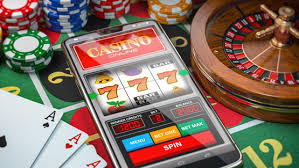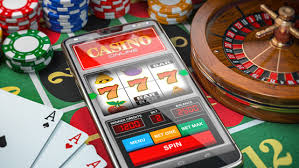In the shadowy corners of the online gambling world, where hope and desperation often intersect, certain names surface with the promise of a secret key to untold riches. Hakim4D is one such name that emerges in searches, often tied to the elusive dream of a “sure-win” system for lottery and number-based gambling games. This article isn’t an explanation of a system; it’s a critical look at why the very idea of a guaranteed gambling strategy is a dangerous mirage, and how names like Hakim4D feed into a pervasive and costly illusion.
The Allure of the “Hakim”: Wisdom or Wizardry?
The word “Hakim” itself, with its roots in languages like Arabic and Urdu, means “wise” or “learned man.” It’s a term of respect for a physician or sage. In the context of gambling, this terminology is strategically co-opted. It’s not just a random name; it’s a branding tool designed to imply that the Hakim4D system is not a mere chance, but is instead built on a foundation of deep, almost mystical, knowledge.
This creates a powerful psychological hook. It frames gambling not as a random game of luck, but as a puzzle that can be solved by someone with the right intelligence or secret data. The gambler is transformed from someone taking a risk into a “student” applying a “wise” methodology. This is a classic trap, making the player feel in control of an inherently uncontrollable environment.
Deconstructing the “4D” Number Game
“4D” typically refers to a type of lottery where players bet on a four-digit number (e.g., 1234). The draw is random. The core mechanics of all licensed lotteries and number games are built on two non-negotiable principles:
Random Number Generation (RNG): The outcome of each draw is completely random. There is no pattern, no cyclical frequency, and no hidden code to uncover from past results. The numbers 1-2-3-4 have the same probability of being drawn as 8-6-3-1, or any other combination. Past draws do not influence future ones.
The House Edge: This is the mathematical advantage that the gambling operator has built into the game. It’s how they ensure profitability over time. Even in games with relatively high prize payouts, the odds are always, always calibrated in the house’s favor. A system might claim to shift these odds, but it cannot change the fundamental mathematics of the game itself.
Why “Systems” Like Hakim4D Are Fundamentally Flawed
Any system, strategy, or software that claims to predict winning numbers for a random lottery is making a mathematically impossible claim. Here’s why:
The Gambler’s Fallacy: This is the mistaken belief that if something happens more frequently than normal during a past period, it will happen less frequently in the future (or vice versa). For example, after seeing the number 7 come up multiple times, a person might believe it is “due” to not appear. In a truly random game, this is false. Each event is independent.
Data Mining and Pattern Recognition: Humans are hardwired to find patterns, even where none exist. A system might analyze thousands of past draws and point to “hot” or “cold” numbers. This is a compelling narrative, but it’s a story built on hindsight, not predictive power. The next draw resets the clock; it doesn’t care what happened before.
The Survivorship Bias: You only hear the success stories. If Hakim4D or any system has 10,000 users and one wins, that one win is promoted as proof that the system works. The 9,999 losses are quietly forgotten. This creates a false perception of effectiveness.
The Real Cost: More Than Just Money
Chasing systems like Hakim4D has a cost that extends beyond the financial loss from buying into the system itself or placing bets based on its faulty predictions.
Financial Damage: It can lead to significant monetary loss under the pretense of a “smarter” way to play.
Emotional Toll: The cycle of hope, investment, and inevitable loss can lead to frustration, anxiety, and a damaged sense of self-worth when the “wise” system fails.
Increased Risk of Problem Gambling: Believing you have a system lowers the perceived risk of gambling. This can lead to chasing losses more aggressively and developing harmful gambling habits, as the player believes a big win is just around the corner if they just keep applying the “method.”
Conclusion: True Wisdom is Understanding the Game
The true “Hakim,” or wise person, in the context of gambling, is not someone who sells a secret system. It is the person who understands the reality of the game:
Gambling is a form of entertainment, not an investment strategy.
The outcome is always based on chance, not skill (in lotteries and slots).
The odds are permanently and mathematically in the house’s favor.
You should only ever gamble with money you are prepared to lose.
The name Hakim4D promises wisdom and control. But the wisest choice a gambler can make is to see such promises for what they are: a marketing tactic designed to exploit hope. The only guaranteed outcome with these systems is that their creators profit, while their users are left navigating the same unpredictable randomness as everyone else.







